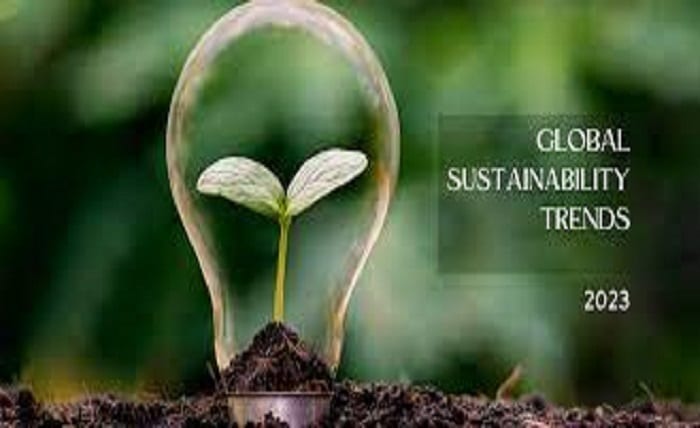Recent Trends in Sustainability Worldwide: Creating a Greener Future

In today’s rapidly changing world, sustainability has become an increasingly crucial topic. As the environmental challenges we face continue to mount, individuals, communities, and nations are recognizing the need to adopt sustainable practices to protect our planet for future generations. In this article, we will explore some of the recent trends relating to sustainability worldwide, highlighting the innovative approaches and solutions being implemented to build a greener future.
The Rise of Renewable Energy
Renewable energy sources, such as solar, wind, and hydroelectric power, have gained significant momentum worldwide. Governments, businesses, and individuals are increasingly investing in renewable energy infrastructure to reduce reliance on fossil fuels and combat climate change. This trend has led to the development of innovative technologies, cost reductions, and increased accessibility to clean energy options.
Sustainable Transportation Solutions
The transportation sector is a significant contributor to greenhouse gas emissions. To address this issue, there is a growing focus on sustainable transportation solutions. Electric vehicles (EVs) are gaining popularity, supported by advancements in battery technology and the expansion of charging infrastructure. Additionally, initiatives promoting public transportation, biking, and walking are being implemented to reduce the carbon footprint of transportation.
Circular Economy: Reducing Waste, Maximizing Resources
The concept of the circular economy is gaining traction worldwide. Instead of the traditional linear model of production and consumption, the circular economy aims to minimize waste and maximize the value of resources. It emphasizes recycling, reusing, and repurposing materials, as well as designing products for durability and easy disassembly. This trend promotes a more sustainable and efficient use of resources throughout the product lifecycle.
Sustainable Agriculture and Food Systems
The need for sustainable agriculture practices has become more evident as the global population continues to grow. Sustainable farming techniques, such as organic farming, permaculture, and agroforestry, prioritize soil health, biodiversity, and water conservation. Additionally, there is a rising interest in locally sourced and seasonal produce, reducing the carbon footprint associated with long-distance transportation of food.
Green Buildings and Sustainable Infrastructure
The construction industry is embracing sustainability by incorporating green building practices and sustainable infrastructure. Energy-efficient buildings, passive design strategies, and the use of eco-friendly materials are becoming standard. Moreover, sustainable urban planning aims to create walkable cities, promote public spaces, and prioritize the integration of nature into urban environments.
The Role of Technology in Sustainability
Technological advancements are playing a crucial role in driving sustainability worldwide. Artificial intelligence (AI), Internet of Things (IoT), and data analytics enable smart energy management, waste reduction, and efficient resource allocation. Furthermore, innovative solutions such as blockchain are being explored to enhance transparency and traceability in supply chains, ensuring ethical sourcing and reducing environmental impact.
Corporate Social Responsibility and ESG Investing
Companies are increasingly recognizing the importance of corporate social responsibility (CSR) and environmental, social, and governance (ESG) factors. Sustainable practices are being integrated into business strategies, supply chains, and stakeholder engagement. Moreover, investors are considering ESG criteria when making investment decisions, encouraging companies to prioritize sustainability and long-term value creation.
The Emergence of Conscious Consumerism
Consumers are becoming more conscious of the environmental and social impact of their purchasing decisions. They are seeking sustainable products, demanding transparency, and supporting companies that align with their values. This trend has led to the emergence of eco-labels, certifications, and responsible consumption campaigns, empowering consumers to make informed choices and drive sustainable change.
Sustainable Fashion: A Shift towards Ethical Practices
The fashion industry, known for its environmental and social challenges, is undergoing a transformation towards sustainability. Brands are adopting ethical sourcing, reducing water usage, and embracing circular fashion practices, such as clothing rental and upcycling. Consumers are also embracing slow fashion, prioritizing quality over quantity and supporting local artisans and sustainable fashion initiatives.
Sustainable Tourism: Protecting Natural and Cultural Heritage
As tourism continues to grow, there is a growing emphasis on sustainable tourism practices. Destinations are implementing measures to protect natural landscapes, conserve biodiversity, and preserve cultural heritage. Eco-friendly accommodations, community-based tourism initiatives, and responsible travel campaigns are gaining momentum, promoting sustainable tourism that benefits both the environment and local communities.
Climate Action and International Cooperation
Addressing climate change requires global cooperation and concerted efforts. International agreements, such as the Paris Agreement, aim to limit global warming and promote adaptation and resilience. Governments, organizations, and individuals are collaborating to reduce emissions, develop climate action plans, and support vulnerable communities in adapting to the impacts of climate change.
Education and Awareness for Sustainable Development
Education plays a crucial role in creating a sustainable future. Efforts are being made to incorporate sustainability education into school curricula, raising awareness about environmental issues and empowering individuals to take action. Moreover, sustainability-focused organizations and online platforms are providing resources, information, and training to promote sustainable practices at various levels.
Nature-Based Solutions for Climate Resilience
Nature-based solutions harness the power of ecosystems to address climate change and enhance resilience. Reforestation projects, restoration of wetlands and mangroves, and the creation of green spaces in urban areas contribute to carbon sequestration, flood protection, and climate adaptation. These initiatives promote the coexistence of humans and nature, ensuring a more sustainable and resilient future.
Sustainable Water Management
Water scarcity and pollution are pressing issues worldwide. Sustainable water management practices, such as rainwater harvesting, water recycling, and efficient irrigation systems, are being implemented to conserve water resources. Furthermore, awareness campaigns and regulations aim to promote responsible water consumption and protect freshwater ecosystems.
Empowering Local Communities for Sustainable Development
Sustainability initiatives are most effective when they involve and empower local communities. Engaging communities in decision-making processes, providing access to education and resources, and fostering entrepreneurship contribute to sustainable development. By recognizing the diverse needs and perspectives of local communities, we can ensure inclusive and equitable solutions for a sustainable future.
Conclusion
The recent trends in sustainability worldwide demonstrate a growing commitment to building a greener and more sustainable future. From renewable energy and circular economy practices to sustainable agriculture, responsible consumption, and international cooperation, individuals, businesses, and governments are embracing innovative approaches to address environmental challenges. By collectively adopting and implementing sustainable practices, we can create a world where future generations can thrive in harmony with the planet.



